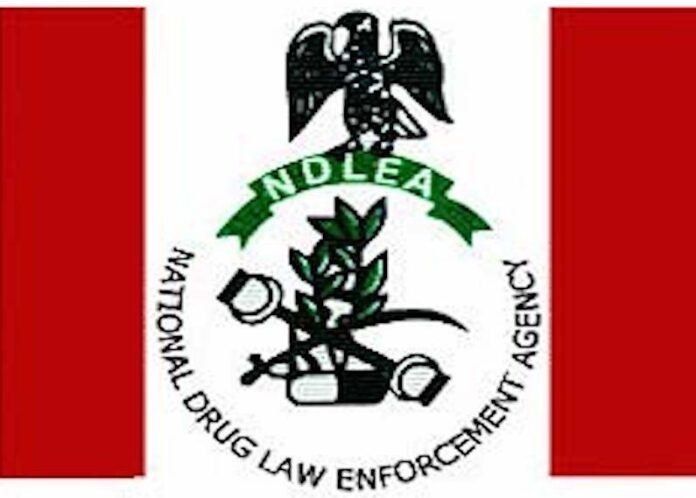Nigeria arrested no fewer than 8,634 suspected drug traffickers from January to August 2021, Chairman/Chief Executive Officer, National Drug Law Enforcement Agency (NDLEA), Brig.-Gen. Buba Marwa (rtd), has disclosed.
Marwa told the Human Rights, Humanitarian Affairs, and Social Committee of the UN General Assembly in New York on Tuesday that NDLEA also made seizures of more than100 billion nairas in drugs and cash over the period.
“Our consistent targeting of drug trafficking organizations has resulted in the arrest of 8,634 suspected drug traffickers and the seizure of over 100 billion Naira in cash and drugs,” he said.
“Perpetrators will go through the criminal justice system, with their fundamental human rights being strictly upheld.
“Against the backdrop of the strong linkage between illicit drug consumption and insecurity, it is worthy of note that Nigeria made its first seizure of 74.119 kg of Captagon brand of amphetamine, presumably destined for use, to fuel insurgency and other violent crimes and criminalities, which Nigeria is currently grappling with.
“Nigeria is happy to report that the EU-funded, UNODC sponsored Cannabis Cultivation Survey is expected to bring to the fore the full extent of cannabis cultivation in Nigeria and make it easier to target measures to contain this perennial menace,” Marwa said.
The NDLEA boss thanked the international partners for supporting Nigeria’s fight against drug abuse and trafficking.
Marwa said the unexpected emergence of the COVID -19 pandemic, no doubt, had further accentuated the scourge of drug trafficking and related crimes globally.
“It is worthy of mention here that one of the challenges of the pandemic is the proliferation of online sale of drug cookies and use of courier services to move illicit drugs.
“However, we were able to intercept, trace and dismantle most of the drug cells involved.
“This constitutes a clarion call for all nations of the world to unite in adversity by taking concerted and well-coordinated actions at national, regional and international levels to address and counter the world drug problems, through evolving drug control policies, effective crime prevention mechanisms, and a complete overhaul of the criminal justice system.”
“Nigeria will remain undaunted in adopting dynamic strategies to counter new approaches adopted by organized criminals, in order to make drug trafficking unattractive.
“It will ensure forfeiture of the criminally derived assets, a tested and powerful deterrent to the proliferation of Drug Crimes and Criminalities,’’ he said.
In addition, Marwa told the UN committee that the Nigerian government had produced the improved fourth edition of the Drug Control Master Plan 2021 to 2025 with technical support from the UNODC, EU funding.
He said the document comprehensively addressed four thematic pillars of supply reduction, demand reduction, access to controlled medicines for medical purposes, and coordination and governance.
“Nigeria is committed to the periodic monitoring and evaluation of the master plan with relevant stakeholders for optimum results,’’ the Nigerian drug enforcement boss stressed.
According to him, the Nigerian government has exhibited political will by demonstrating a high commitment to the protection of public health and safety with the launch of the War Against Drug Abuse (WADA) campaign.
“This campaign is a call for civil action for all Nigerians to buy in and take full ownership of the fight against the menace of illicit drugs.
“More so, Nigeria’s drug control efforts have received a tremendous thrust with unprecedented stakeholders’ involvement.
“We have engaged civil society groups, non-governmental organisations, academia and governments at all levels, public enlightenment is also being strengthened with remarkable media visibility against illicit drugs and related criminalities,’’ he said.
The NDLEA chief also told the committee that appropriate strategies had been adopted to address the issue of stigmatisation of people who used drugs in the country.
He said strategies adopted to address stigmatisation included meeting the needs of vulnerable communities and groups such as women, girls, children (out of school and homeless), internally displaced persons, among others.
He said Nigeria recognised drug use disorder as a public health issue and the COVID-19 pandemic lockdown necessitated the establishment of UNODC-EU sponsored Drug Help Net, a network of professionals who provided over-the-phone assistance to people who use drugs and their families during the lockdown.
The NDLEA, saddled with eliminating the growing, processing, manufacturing, selling, exporting, and trafficking of hard drugs, is present at the nation’s international airports, seaports, and border crossings and it tries to eradicate cannabis by destroying plantings.
The agency also targets leaders of narcotics and money laundering organisations.

